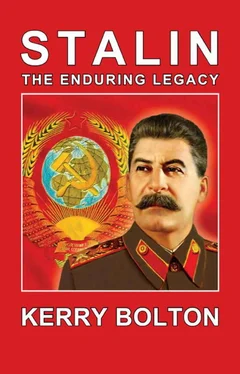The founding conference of the Congress for Cultural Freedom was held at the Waldorf Astoria Hotel in 1949, as a provocation to a Soviet-sponsored peace conference at the Waldorf supported by a number of American literati. The CIA states of the CCF’s founding:
A handful of liberal and socialist writers, led by philosophy professor Sydney Hook, saw their chance to steal a little of the publicity expected for the Waldorf peace conference. A fierce ex-Communist himself, Hook was then teaching at New York University and editing a socialist magazine called The New Leader . Ten years earlier he and his mentor John Dewey had founded a controversial group called the Committee for Cultural Freedom, which attacked both Communism and Nazism. He now organized a similar committee to harass the peace conference in the Waldorf-Astoria. [93] CIA, https://www.cia.gov/library/center-for-the-study-of-intelligence/csi-publications/csi-studies/studies/95unclass/Warner.html
The periodical Hook was editing, The New Leader , was a Marxist publication whose executive editor from 1937-1961 was a Russian emigrant, Sol Levitas, a Menshevik who had been mayor of Vladivostok [94] Myron Kolatch, ‘Who We Are and Where We Came From’, The New Leader, http://www.thenewleader.com/pdf/who-we-are.pdf (accessed 27 January 2010). The New Leader stopped publication as a print edition and became online in 2006.
and who had worked with the Bolshevik leaders Trotsky and Bukharin. [95] Saunders, op. cit., 163.
These Mensheviks and Bolsheviks became fanatically anti-Soviet, [96] Trotsky himself began as a Menshevik, the chief rival to Bolshevism after the two factions split in the Russian Social Democratic Labour Party. Trotsky then straddled both factions for much of his career, only definitively becoming a Bolshevik with the triumph of the Leninist party in November 1917.
with the triumph of Stalin over his political rivals. Saunders quotes Tom Braden of the CIA as stating that The New Leader was kept alive through subsidies that Braden gave to Levitas. [97] Saunders, op. cit., 163.
Partisan Review , [98] Saunders describes Partisan Review as having been founded in the 1930s by ‘a group of Trotskyites from City College, originating in the Communist Party front group, the John Reed Club’. Saunders, ibid., p. 160. When Partisan Review was on the verge of bankruptcy Sidney Hook appealed for assistance, and Henry Luce, the publisher of Time, gave a grant of $10,000, while donating Time Inc. shares to the American Committee for Cultural Freedom. (Saunders, ibid. 162). Partisan Review, whose editor William Phillips was cultural secretary of the American Committee of Cultural Freedom, continued to received CIA funding as did The New Leader. Saunders, ibid., 163.
the Leftist magazine that had published Trotsky’s art manifesto, was saved from financial ruin by the Rockefeller and other Foundations and by the CIA. [99] Ibid., 231.
The CCF was able to recruit some prominent Leftists, including David Rousset, editor of Franc-Tireus [100] Ibid., 221.
; and Melvin J Lasky [101] Ibid., 27-28.
, who had edited The New Leader and was editing Der Monat, a US sponsored newspaper in Germany, and later the influential magazine Encounter ; [102] Tunku Varadarajan, ‘A Brief Encounter, Melvin Lasky is a legend. Better yet, he dislikes Maureen Dowd’, The Wall Street Journal, 6 April , 2001, http://www.opinionjournal.com/taste/?id=90000394
and Franz Borkenau, a German academic who had been the official historian of the Comintern, [103] Saunders, op. cit., 71.
had fallen afoul of the Communist Party as a Trotskyist, and became one of the founding members of the CCF. [104] ‘Franz Borkenau’, Spartacus Educational, http://74.125.155.132/search?q=cache:m2miYnAvig0J ; www.spartacus.schoolnet.co.uk/SPborkenau.htm
A socialist conference was called in Berlin in 1950 to extend the CCF into a global movement, organised by Lasky; Ruth Fischer, formerly a leader of the German Communist party who had been expelled from the party along with her faction on orders from Moscow; and the above named Franz Borkenau [105] Saunders, ibid., 71.
Honorary chairmen included John Dewey and Bertrand Russell. [106] Russell was a patron of the CCF. Saunders, op. cit., 91. He like other Leftists and internationalists regarded Stalinist Russia as the chief obstacle to world government after World War II, to the extent that the famous ‘pacific’ guru advocated the atomic bombing the USSR. Russell, ‘The Atomic Bomb and the Prevention of War’, Bulletin of Atomic Scientists, 1 October, 1946).
The CIA states of this conference:
Agency files reveal the true origins of the Berlin conference. Besides setting the Congress in motion, the Berlin conference in 1950 helped to solidify CIA’s emerging strategy of promoting the non-Communist left◦– the strategy that would soon become the theoretical foundation of the Agency’s political operations against Communism over the next two decades. [107] CIA website: ‘Cultural Cold War: Origins of the Congress for Cultural Freedom, 1949-50’; op. cit.
To say that the CCF and fellow-travellers were ‘anti-communist’, as the CIA rationalises its support, is nonsense. While the CCF and other CIA and Foundation protégés included non-communist Leftists, such as liberals, social democrats and Menshevik veterans, it is wholly inaccurate to refer to this cultural subversion as ‘anti-Marxist’. The cultural offensive and the factor that united disparate elements was anti-Stalinist and such was the obsessive hatred of many Marxists, especially Trotskyites, against the USSR that they were willing to become conscious tools of the CIA and the Foundations of the wealthy. They saw Stalinism as a betrayal of Communism, to the extent of regarding US imperialism as a necessary means of fighting the Stalinists, and provided the ideological foundations for the Cold War and what continues to be mistakenly called ‘Right-wing’ and ‘conservative’.
Stalin’s Response
Around the same time that the Trotskyite-capitalist-CIA axis was planning a world cultural revolution apparently based on the Trotsky-Breton-Diego manifesto, the USSR began a cultural counter-offensive, building on Zhdanov’s 1948 speech outlining a definition of ‘Soviet culture’ and repudiating ‘leftism’ in the arts.
In 1949 in the organ of the Central Committee of the Bolshevik party, F Chernov condemned the infiltration of cosmopolitanism in Soviet arts, sciences and history. [108] F Chernov, ‘Bourgeois Cosmopolitanism and its reactionary role’, Bolshevik: Theoretical and Political Magazine of the Central Committee of the All-Union Communist Party (Bolsheviks) ACP(B), Issue #5, 15 March 1949, 30-41.
The article stands as a counter-manifesto not only to the Trotskyites and the ‘cultural cold war’ of the time, but also as an enduring and relevant repudiation of modernism and rootless cosmopolitanism as it continues to manifest in the present age of chaos. I would go so far as to suggest that the Chernov article, despite the occasional splattering of Marxist rhetoric, and some time-specific issues, provides a perceptive critique of the modern world in accord with Conservative thinking.
Chernov began by referring to articles appearing in Pravda and Kultura i Zhizn (‘Culture and Life’), which ‘unmasked an unpatriotic group of theatre critics, of rootless cosmopolitans, who came out against Soviet patriotism, against the great cultural achievements of the Russian people and of other peoples in our country’. Chernov described this coterie as ‘rootless cosmopolitans’, and ‘propagandists for decadent bourgeois culture’, while they were ‘defaming Soviet culture’. The culture of the ‘West’ is described as ‘emaciated and decayed’, a description with which any Conservative critic of Western modernism, such as the poets T S Eliot and W B Yeats or the philosopher-historian Oswald Spengler, would concur. The ‘Soviet culture’ referred to by Chernov is the classic ‘great culture of the Russian people’, and is therefore of a folkish-national character and there is nothing Marxist about it. By 1949 the highest Soviet authority◦– Stalin◦– whose views Chernov must have been conveying, had perceived that the USSR was the target of broad-ranging cultural subversion:
Читать дальше












